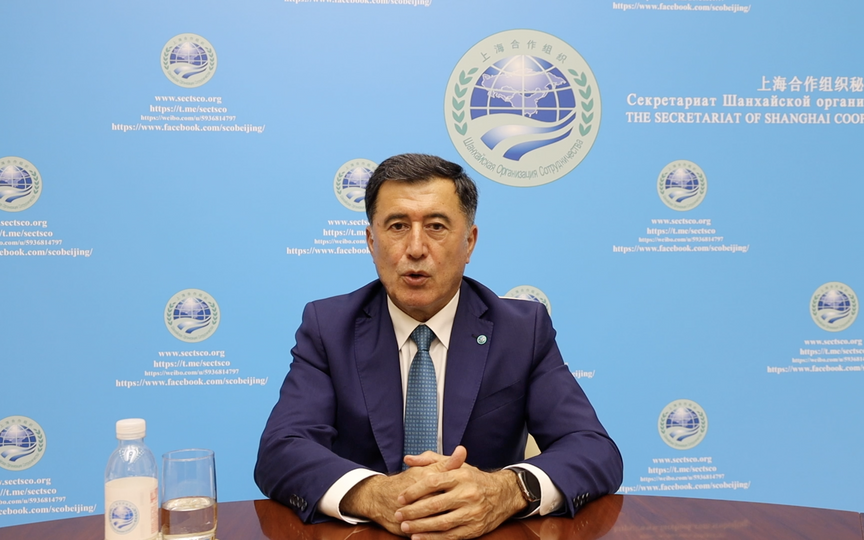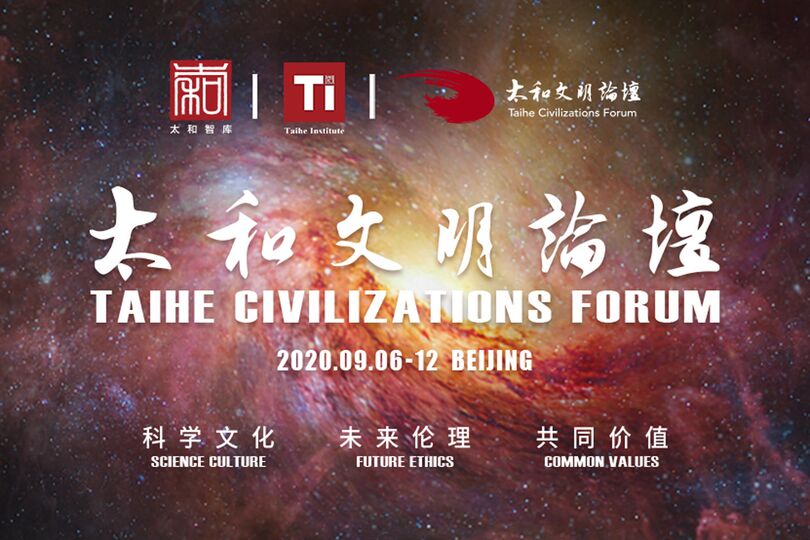On 6-12 September, the fourth Taihe Civilisations Forum 2020, "Science Culture · Future Ethics · Common Values" was held in Beijing via videoconference.
The forum was attended by prominent statesmen and public figures, political scientists and academics. Chinese and foreign experts spent six days exchanging views on the current agenda of international politics and the socioeconomic development of the international community after the end of the COVID-19 pandemic.
The forum programme consisted of four sessions: international relations, advanced technologies, education and culture, and youth dialogue. Three topics including the current stage of Sino-American relations and their impact on the world, maintaining global biosafety through new scientific, technical and innovative mechanisms, and fostering a range of professional capabilities of future talents were the special focus of the conference.
SCO Secretary-General Vladimir Norov delivered a video greeting to the participants.
In his remarks, he noted the importance of the forum being held despite the ongoing epidemiological and socioeconomic crisis caused by the coronavirus pandemic. He emphasised that the trials that human society is facing are increasingly actualising the value and significance of a united global civilisation. The COVID-19 pandemic has demonstrated that the world is interconnected.
"It causes deep concern that the pandemic has so far not led us to properly combine multilateral efforts on a platform of joint response to this new global challenge. On the contrary, what we are witnessing is growing mutual mistrust, when, instead of consolidating the potential of the leading states in the fight against the pandemic, counterproductive attempts are being made to appoint a guilty party," he said.
In this regard, he said, the turbulence that the two largest economies, China and the United States, have been involved in, could potentially jeopardise the restoration of global production chains and a favourable trade and investment climate. Moreover, it could damage security and stability not only in the Asia-Pacific region, but also in other parts of the world.
At the same time, noting the leading countries' successes in the development of a coronavirus vaccine, the speaker expressed solidarity with the WHO position on the need to provide the widest possible access to it, regardless of political interests and national borders.
He also highlighted the increased relevance of preventing terrorists from potentially obtaining coronavirus strains and other biological agents and hazardous chemicals or technologies for production, and emphasised the need to convene multilateral consultations on the development of an international convention against chemical and biological terrorism.
Another point the speaker made concerned the need to foster young talent to improve their professional capabilities. More than 800 million young people live in Asia, accounting for nearly half of the world's youth. The leaders of the SCO member states
attach great importance to promoting their creative development, primarily through providing affordable and quality education for the full realisation of their individual potential.
In this regard, it is a major strategic task for any country in this increasingly complicated world to build a system of continuous, life-long, innovation and high-tech education that meets strategic development goals, as well as the needs of the education system, the economy, and all of society.
"The technology revolution taking place before our eyes is the work of young people. It is becoming a reality largely thanks to the enthusiasm and inquisitive minds of 21st century young people. They need to be able to further improve their professional activities," Vladimir Norov said.
Wu Hailong, the Lead Research Fellow in International Relations at the Taihe Institute and President of the China Public Diplomacy Association, noted that Sino-American relations are the most important issue, critical not only for these two countries, but for the rest of the international community as well, given that they directly affect global peace and stability. China and the United States must address their challenges through dialogue and expanded cooperation, especially in containing the COVID-19 pandemic, and help the global economy recover in the post-pandemic era.
Honorary Member of the Taihe Institute, former SCO Secretary-General Rashid Alimov noted that any difficult situation or tension in relations between China and the United States could have a negative impact on the global economy. In the face of common threats to humanity, both powers must show leadership and strengthen interaction and cooperation, rather than exacerbate tensions.
When discussing matters of education and culture, the forum participants emphasised that, being the most active, creative and dynamic force, young leaders are a key factor in promoting social progress as well as an important force in addressing global problems. Finding ways to stimulate their creative activity is very relevant today.
Honorary Member of the Taihe Institute, Director-General of UNESCO in 2009-2017 Irina Bokova noted the need to expand international scientific cooperation. The development of science is only possible through dialogue and the interaction of peoples and cultures.
The event participants also noted that the pandemic has exacerbated the challenges to biosafety. Outbreaks of new infectious diseases threaten human life, cause massive casualties, and imply changes in the international order.
Taihe Institute was established in Beijing, China, in 2013 as an international think tank with the mission to "gather the global elite and seek common values."
Taihe initiated the Taihe Civilisations Forum (TCF), its most prestigious annual event in 2017, and remains a member of the International Belt and Road Studies Network and the International Alliance for Green Development under the Belt and Road Initiative.
Video of the SCO Secretary-General's remarks available here

